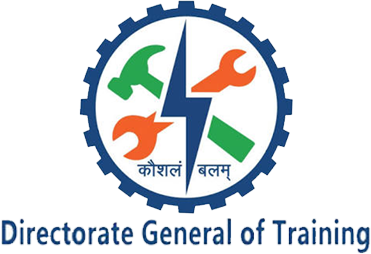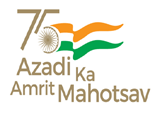Technician Electronics System Design & Repair
Directorate General of Training (DGT) under Ministry of Skill Development & Entrepreneurship offers range of vocational training courses catering to the need of different sectors of economy/ Labour market. Technician Electronics System Design and Repair trade under CTS is one of the most popular courses delivered nationwide through network of ITIs.During the two-year duration of Technician Electronics System Design and Repair trade a candidate is trained on professional skill, professional knowledge and Employability skill related to job role. In addition to this a candidate is entrusted to undertake project work, On Job Training (OJT) and extracurricular activities to build up confidence. After passing out the training program, the trainee is awarded National Trade Certificate (NTC) by DGT which is recognized worldwide.

FIRST YEAR: In this year the trainee learns about safety and environment, use of fire extinguishers, artificial respiratory resuscitation to begin with. He gets the idea of trade tools & its standardization, Familiarize with basics of electricity, test the cable and measure the electrical parameter. Skilling practice on different types & combination of cells for operation and maintenance of batteries being done. Identify and test passive and active electronic components. Construct and test unregulated and regulated power supplies. Practice soldering and de-soldering of various types of electrical and electronic components on through hole PCBs. Able to achieve the skill on SMD Soldering and De-soldering of discrete SMD components. Trainees will learn and acquire handful skill of PCB designing using software and able to develop PCB. Assemble a computer system, install OS, Practice with MS office. The candidate will be able to construct and test amplifier, oscillator and wave shaping circuits. Testing of power electronic components. Verifying the truth tables of various digital ICs by referring Data book. Practice circuit simulation software to simulate and test various circuits. Identify various types of LEDs, LED displays and interface them to a digital counter and test. Construct and test various circuits using linear ICs 741 & 555. Trainee will be able to operate CRO/DSO and perform various functions Electronics Measuring instruments. They can construct and test analog and digital IC based application circuits as a part of project work.
SECOND YEAR: In this year trainees will learn Embedded C Programming. Identify various Pins and familiar with the pin function of 8051. Programming and debug applications using Embedded „C‟ on 8051 platform i.e. following the complete system architecture including memory, memory blocks, timers, interrupts and power management, Configuring Timers on 8051 Microcontrollers, Configuring Interrupts on 8051 Microcontrollers, Configuring Serial Port on 8051, Interfacing LCD with 8051 Microcontrollers, Interfacing key board with 8051 Microcontrollers, Interfacing stepper motor with 8051 Microcontrollers, Demonstrate the ability to apply Knowledge on PIC Architectural Concepts, Programming and debug applications using Embedded „C‟ on PIC platform, Configuring Timers of PIC Microcontrollers, Configuring Interrupts on PIC Microcontrollers, Configuring Serial Port on PIC Microcontroller, Interfacing LCD with PIC Microcontrollers, Interfacing stepper motor with PIC Microcontrollers, Gain Knowledge onvarious sensors and Actuators application in embedded system and skill to incorporated and interface with Embedded system and IoT based system application. Finally Trainees will acquire knowledge and skill IoT application and its Components, IoT Protype Boards, ARM controller & Its programming with C/C++, Micro Python (Node MCU, Arduino, Raspberry Pi, IoT Protocol & Gateway, IoT Cloud platform & Application development (BLYNK, Thing speak, AWS/Azure
PROGRESSION PATHWAYS:
- Can join industry as Technician Electronics system design and will progress further as Junior Embedded Engineer, Specialist in Arduino based Embedded System Design, can rise up to the level of Manager. Can become Entrepreneur in the related field.
- Can appear in 10+2 examination through National Institute of Open Schooling (NIOS) for acquiring higher secondary certificate and can go further for General/ Technical education.
- Can take admission in diploma course in notified branches of Engineering by lateral entry.
- Can join Apprenticeship programme in different types of industries leading to National Apprenticeship certificate (NAC).
- Can join Crafts Instructor Training Scheme (CITS) in the trade for becoming instructor in ITIs.
- Can join Advanced Diploma (Vocational) courses under DGT as applicable.
Industry Connect
Entry Qualification:
a) 10th Class Passed
b) Lateral Entry: Direct 2nd Year admission for NTC Passed Out (Two Years Courses) In Electronics & Hardware Sector or IoT Group of trades
Minimum Age:
16 years as on first day of academic session.
Faculties:
Smt. Sindhu, Guest Lecturer
Shri. Saju T S, Vocational Instructor



